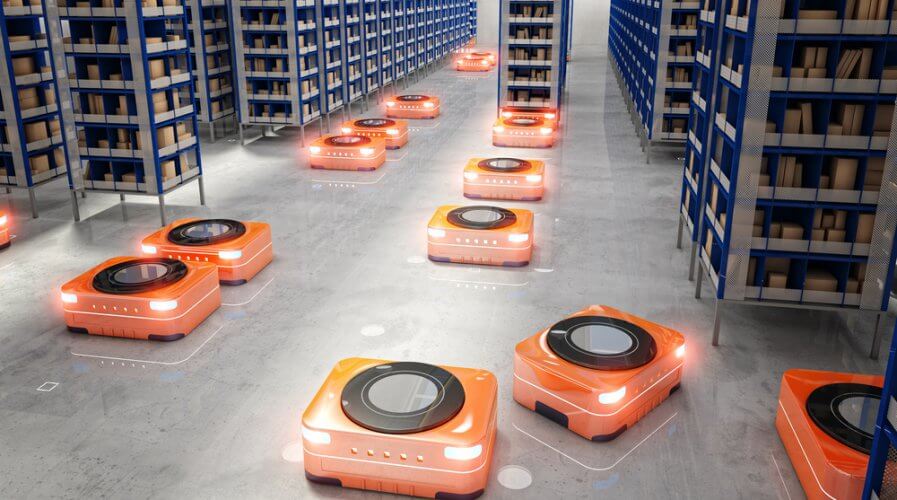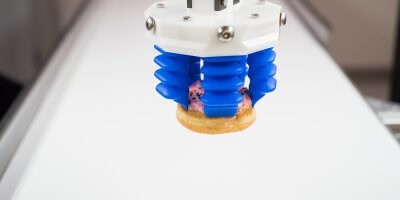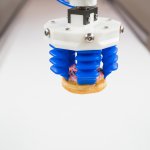
Robots called Vermillion Birds are being used for China’s Double Eleven Festival to help human workers process orders more efficiently. Source: Shutterstock
China’s e-commerce giants employ advanced tech for Double Eleven festival
MAJOR players in the e-commerce game such as Alibaba, Suning and JD.com are hastily preparing for Asia’s biggest online shopping event on November 11.
Part of the preparations include utilizing specialized and advanced technology, including robots, big data, and smart logistics, the China Securities Journal reported.
Alibaba’s logistics arm, Cainiao Network, launched China’s largest smart warehouse in Guangdong Province, manned by 60 intelligent robots. Warehouses of this kind also operate in Shanghai, Tianjin, Zhejiang, and Hubei.
The utilization of this technology comes just in time for China’s largest online shopping event, Double Eleven, also known as Singles Day. The event, which was introduced by Alibaba five years ago to promote discounted shopping, now attracts a wealth of celebrity attention and adds to China’s already huge e-commerce value.
Last year the event made US$17.8 billion in 24 hours, with revenues set to climb higher this year. The event boasts collaborations with 30,000 offline stores, and 20,000 of the vendors featured on Alibaba’s retail sites, Tsmall and Taobao, are promising 50 percent discounts.
The event contributes heavily to China’s astounding e-commerce market, with sales expected to exceed US$1.132 trillion in 2017, according to eMarketer.
Alongside Alibaba’s clever robotics network, is JD.com’s autonomous warehouses in Shanghai, Wuhan, and Hunshan, which will also be used during the busiest shopping day. JD.com are also trialing self-developed drones and self-driving cars for Double Eleven.
The use of this robotics, termed Zhu Que, meaning Vermillion Bird, enables working output to increase threefold, according to Quicktron. The robots also decrease risk for human workers as they are able to carry large loads of stock quickly and efficiently, and allow workers to proceed with more intricate jobs.
China’s three e-commerce giants are busily preparing for the “Double Eleven Shopping Festival” on November 11 https://t.co/yOpCiiWlXp
— Asia Times (@asiatimesonline) October 19, 2017
Advanced laser technology keeps the ‘Zhu Que’ from crashing into one another in their busy routines. “The robots need to collaborate with each other and work independently at the same time. They represent the highest level of China’s warehouse robots,” a representative of Cainiao Logistics told Guide in China.
What does this mean for jobs in the future?
Advanced technological adaptations of traditional working methods are becoming more common globally. McKinsey & Company, a global management consulting firm, recently released a report looking at the amount of time spent on workplace activities, and the feasibility of automating these tasks.
The report found that professions involving predictable physical tasks such as tree surgery, soldering, and welding could be performed by a robot. Additionally, 73 percent of activities in food service and hospitality could be automated.
Yet knowledge-dependent jobs like management, and healthcare and educational roles are still far from being automated.
With artificial intelligence and advanced robotics on the rise, the world could very soon see a shift in working methods. To experience a taste of the future, albeit behind the scenes, delve into the Double Eleven sales and grab a bargain.
READ MORE
- Black Friday sales break records, but not bigger than 11.11’s success
- Success during 11.11 festival showcases Alibaba’s powerhouse computing tech
- Alibaba’s 11.11 shopping festival hauls in staggering $25b revenue
- E-tailers up their game as Singles’ Day nears
- China consumer group urges govt to punish firms for ‘fake’ discounts on Singles’ Day






